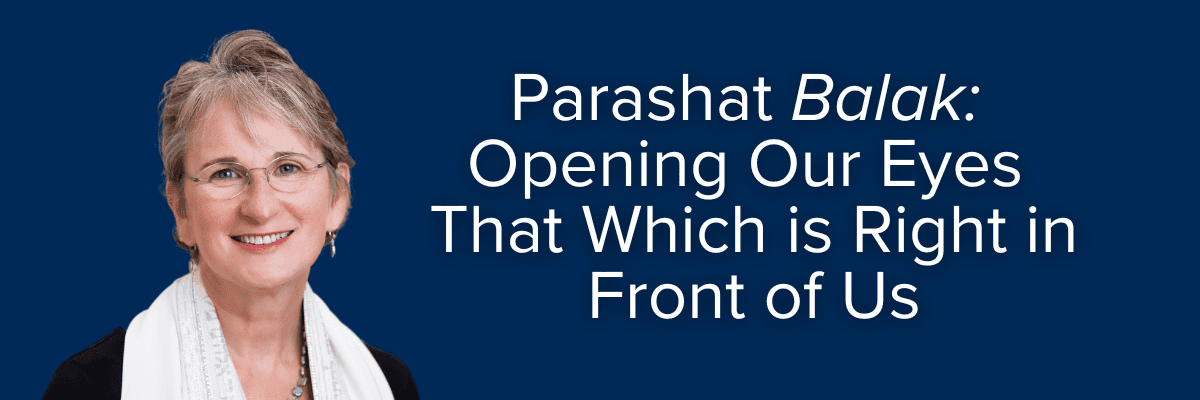Parashat Balak takes its title from Balak son of Zippor, king of Moab. Afraid that the Israelites will attack his nation, Balak invites Bala’am, a well-known pagan prophet, to curse the people of Israel. At first, God forbids Bala’am to grant Balak’s request. Later Bala’am is sent to the Israelite camp but told that he must say only what God commands.
On the way to the Israelite camp, Bala’am is part of a biblical event that reads like a fairy tale. The donkey that he is riding upon sees an angel standing before her blocking her path. Bala’am however, sees nothing and has no idea why his donkey won’t move forward. After three attempts to advance, Bala’am beats the animal. Miraculously, the donkey begins to speak to Bala’am telling him about the angel. Bala’am “opens his own eyes” and sees the angel as well. Fearful, he asks if he should return home, but the angel tells him to continue, warning once again that he is to say only what God commands.
When Bala’am arrives at the camp, the curses he is commissioned to give turn into blessings, including words that endure in our liturgy as the Mah tovu prayer (Numbers 24:5) The king of Moab is foiled, and the Israelites march on with divine blessing.
My favorite character in this story is the donkey. It is from this animal that we learn one of the most important lessons of this biblical saga. Unlike the famous Bala’am, the lowly donkey is able to see something special and sacred standing right in front of her. This is the message of our story – open your eyes! See not only what is right in front of you, but see the sacred, the beautiful and God-like in every being. This is hard work. We make assumptions about people and about our potential relationship with them from our very first glance. We make judgements based on what they are wearing or reading or the car they are driving. The donkey reminds us that there is likely much more in front of our eyes than we think. The story pushes us to look harder.
Perhaps we might try this now, perhaps only for this week. When we meet someone we don’t know, (or someone we do…) let’s begin by wondering if there is something we haven’t yet seen in this person – a deeper story, a complex situation, a wound, a hidden talent. Our eyes can perceive more than just color, light and dark. Let’s look and then look again. May we open our eyes and, as it did for Bala’am and the Israelites, may this lead to blessings.
Shabbat Shalom,
Rabbi Amy Schwartzman


